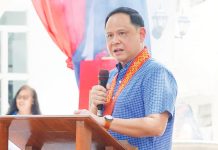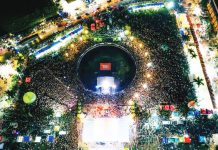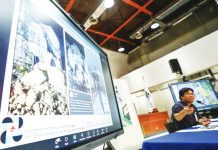
SOCIAL media has been awash with calls for silence. “Do not speak if you are not fully informed,” they say. “Research first before you comment,” they insist.
At first glance, staying silent seems wise, but beneath it lurks dangerous passivity. Silence is not always wisdom; sometimes, it is indifference. When major events shake the nation — like former president Rodrigo Duterte’s arrest — the urge to disengage is strong, but apathy only normalizes complacency.
Staying silent in the face of injustice is not neutrality — it is taking the oppressor’s side. History shows that inaction shields the wrongdoers, not the victims. Martial Law thrived on fear. Nazi Germany’s silent citizens enabled genocide. Today, ignoring Duterte’s bloody legacy allows impunity to persist. Staying quiet is not prudence; it is surrender.
The claim that one must thoroughly research before speaking out is sometimes an excuse for apathy rather than a genuine pursuit of knowledge. While informed discourse is essential, the kind of “research” some people advocate for is often passive, selective, and done with confirmation bias. It is not about understanding the truth; it is about justifying silence.
Moreover, in a society where access to information is skewed by propaganda, waiting for the perfect understanding before taking a stand is an impossible standard. Many of those who insist on this “prudence” do not research to understand; they research to rationalize their inaction. This cultivated passivity is not harmless. It breeds a culture of mediocrity where people become too comfortable with the status quo.
In workplaces, it manifests as employees who witness unfair policies yet choose not to challenge them. It turns into students who see injustice but do not question it in schools. In governance, it results in politicians who make decisions unchecked by public scrutiny. The habit of silence erodes democratic participation, making way for a society that tolerates and eventually expects corruption and abuse.
Apathy, dressed as prudence, has real consequences. It dulls the moral instincts of an entire population. It fosters blind obedience, rewarding those who conform and punishing those who challenge authority.
The effect is visible in how authoritarian leaders maintain control — not just through fear but through the willing passivity of the governed. Studies have shown that in nations with strong authoritarian rule, disengagement is often a greater obstacle to democracy than outright oppression (Levitsky & Ziblatt, 2018). When people are conditioned to “wait until they know everything,” they are more likely to disengage altogether.
In the context of Duterte’s case, the silence of some Filipinos is alarming. Those who once supported his iron-fisted rule now avoid discussing his potential accountability. Those who opposed him are growing exhausted from years of activism, while some fence-sitters choose not to form an opinion at all.
The trial at The Hague is not just about Duterte; it is a test of the country’s moral compass. If Filipinos treat it as someone else’s concern, then impunity wins, and justice remains elusive. (To be continued)/PN







